
RMKM is fostering inclusion through its interventions; Two Inclusive schools – RMKM is pioneer in Rajasthan to initiate special education facilities for intellectually and multiple disabled children since 1988 ‘RMKM’s experience working in the field of disability has culminated in the programme Pahla Kadam meaning the first step towards inclusion in practice.
launched in the year 2005, RMKM’s decision to implement reverse inclusion in its two schools based on visioning workshops done by professionals with RMKM staff and after reviewing extensive research done on the implementation of inclusive education practices . RMKM believed that a shift to a more ‘inclusive’ approach would benefit the disabled and non disabled children both. RMKM follows a zero rejection policy in its admission process on the basis of disability, caste, religion, gender and economic status.RMKM has received district ,state, national and international recognistion for its work in the field of Disability and inclusion
RMKM organizes various district, zonal and national level olympics games for CWSNs in collaboration with Special Olympics, Bharat.
Minu School, chachiyawas : Minu school was established in 1988 and started intervention for intellectual disabled and multiple disabled children as a special school , to support India’s mission of inclusion of CWSN with support of SRTT RMKM did reverse inclusion 2005. its first school of this kind in India which turned special school to regular school and set up as a model school to promote inclusion of CWSN in regular classrooms and community.Now we are catering services to cross -disability.
we observed that there are hidden disabilities in the regular classroom where children are facing reading, writing, comprehension, arithmetic challenges ,behavioural issues, memory issues and most of the time these disabilities are kept unidentified which leds the drop out of students from schools.considering these challenges
MINU school is rendering services
Under one roof along with regular school and self contained classes facilities for CWSN following services are provided for overall development of non disabled and disabled children.
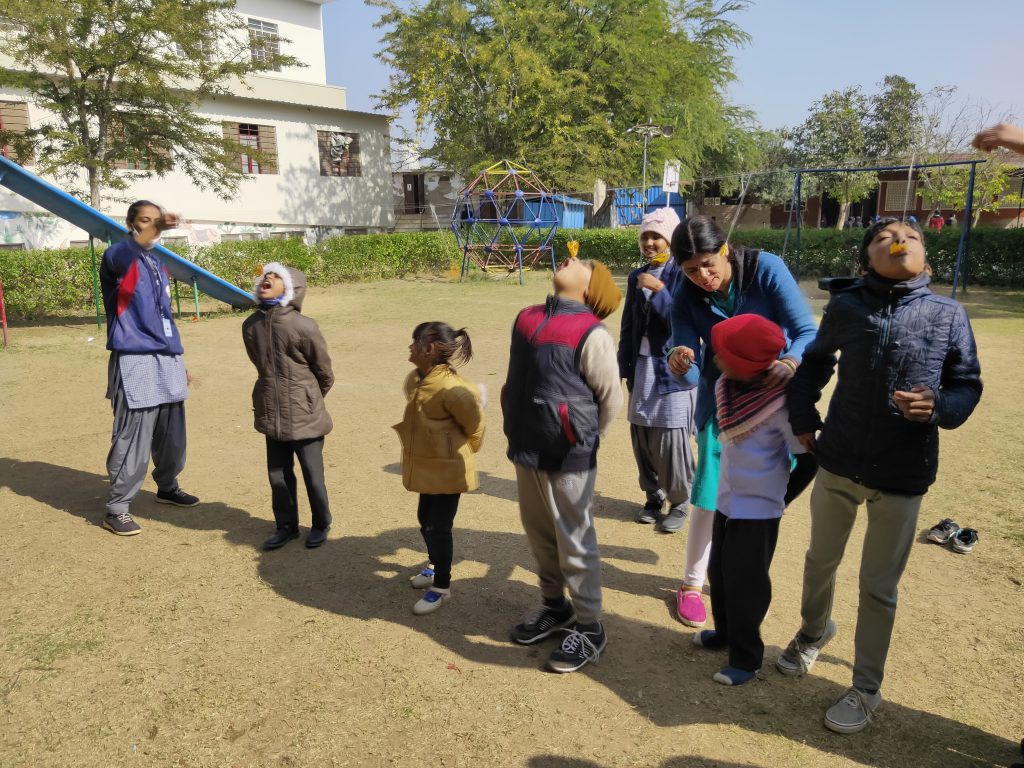
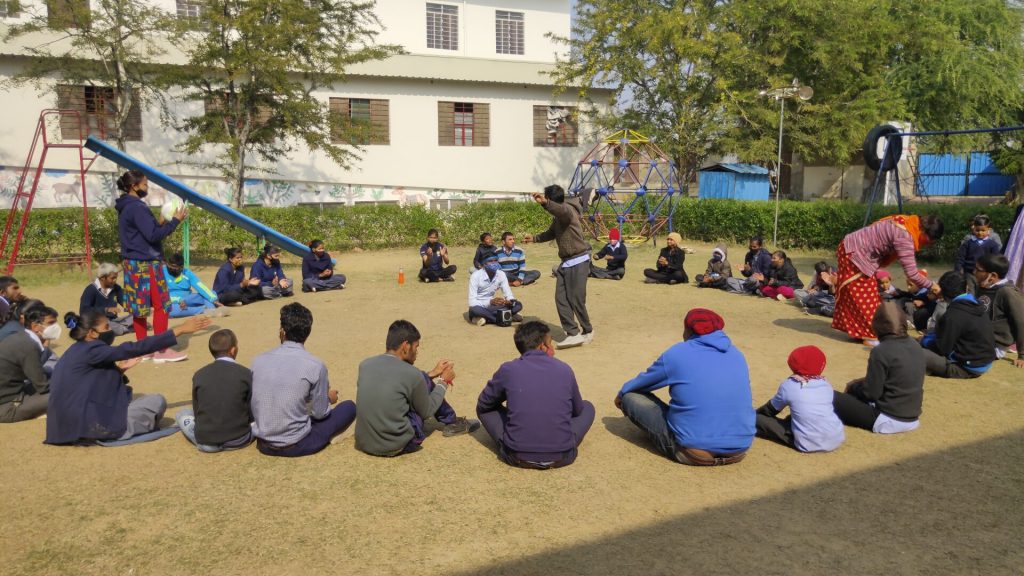
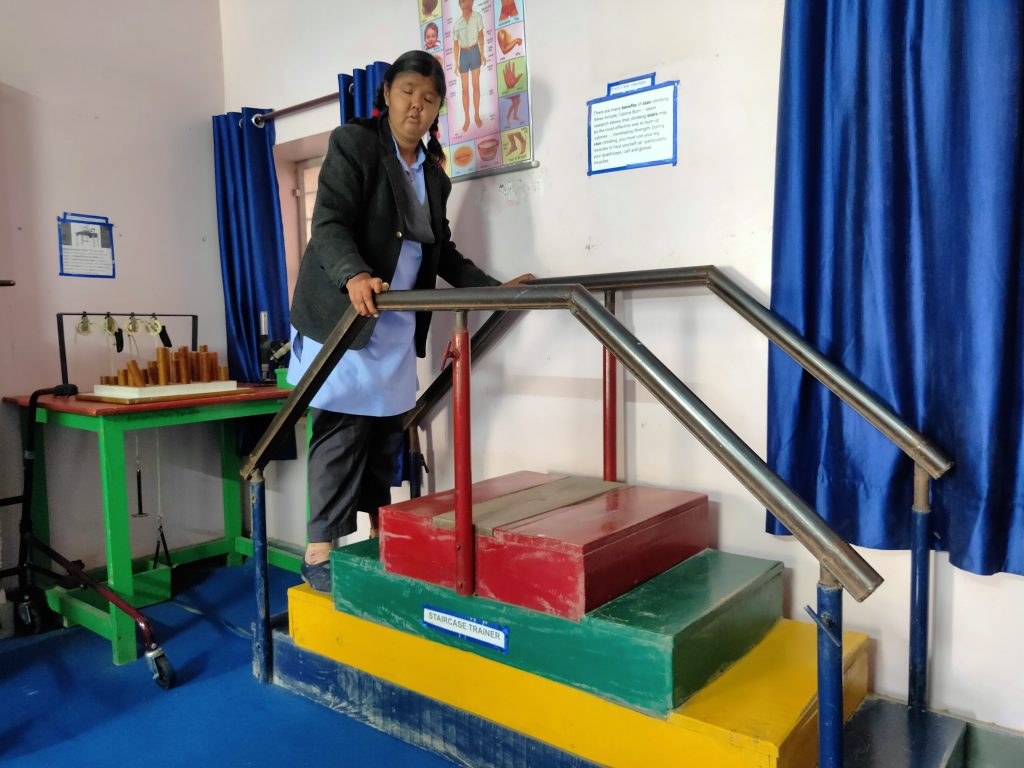
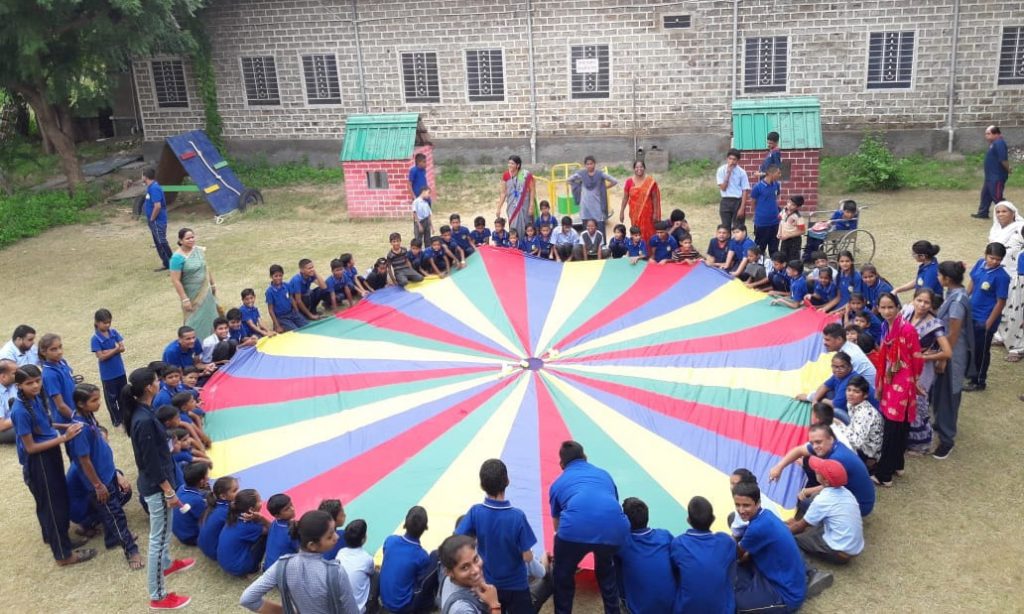
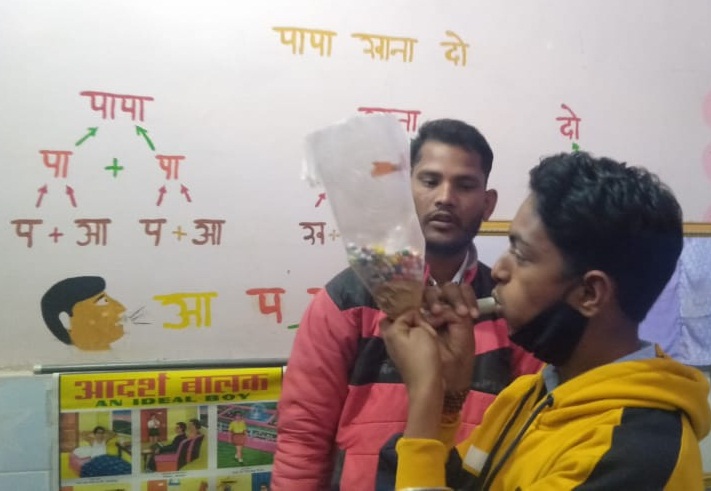
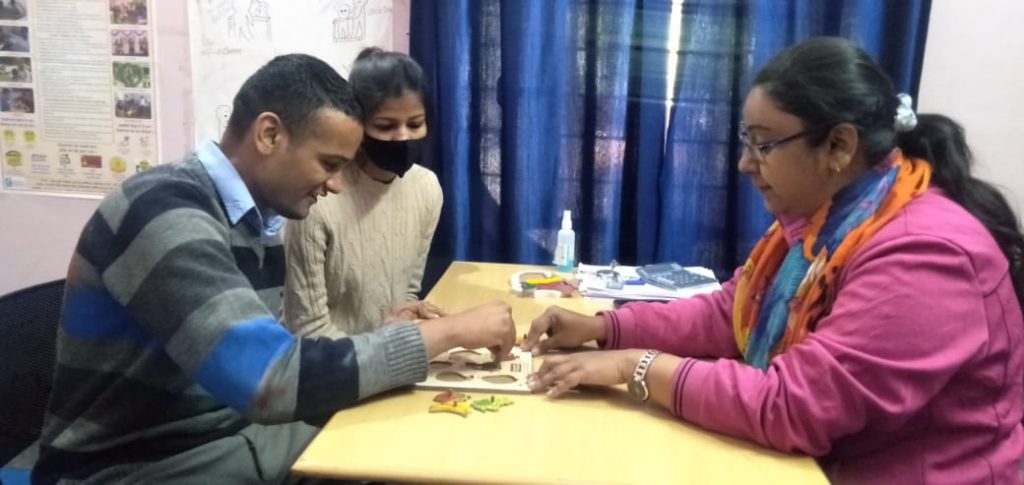
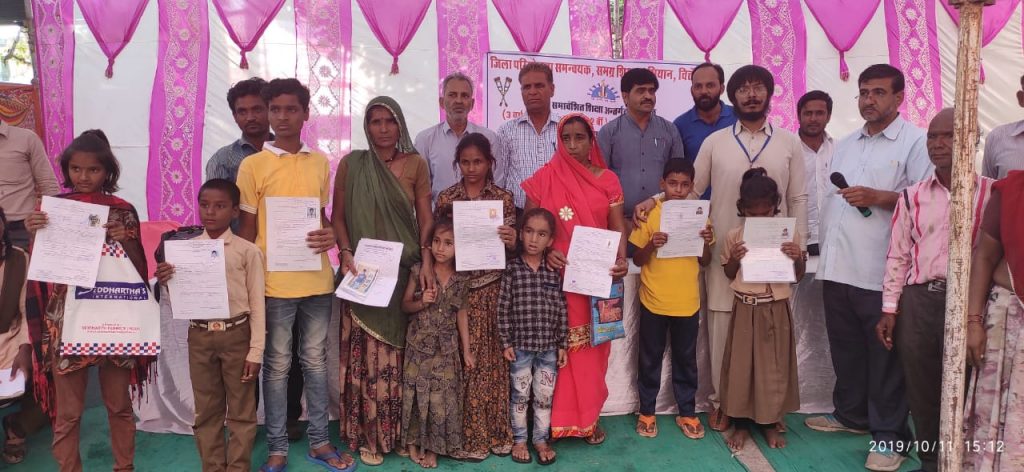
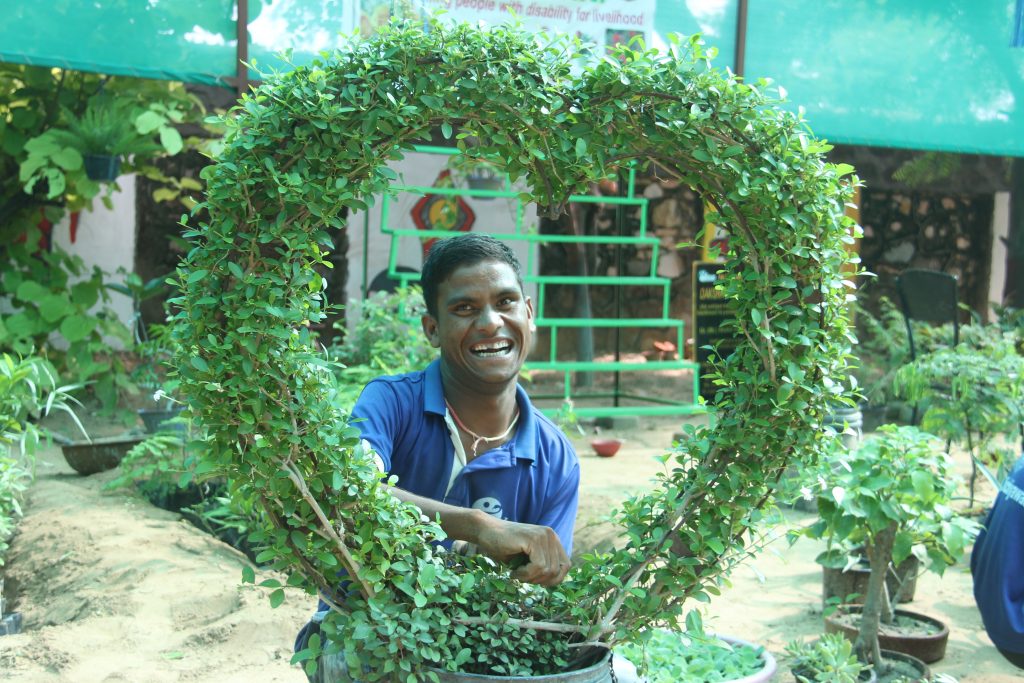
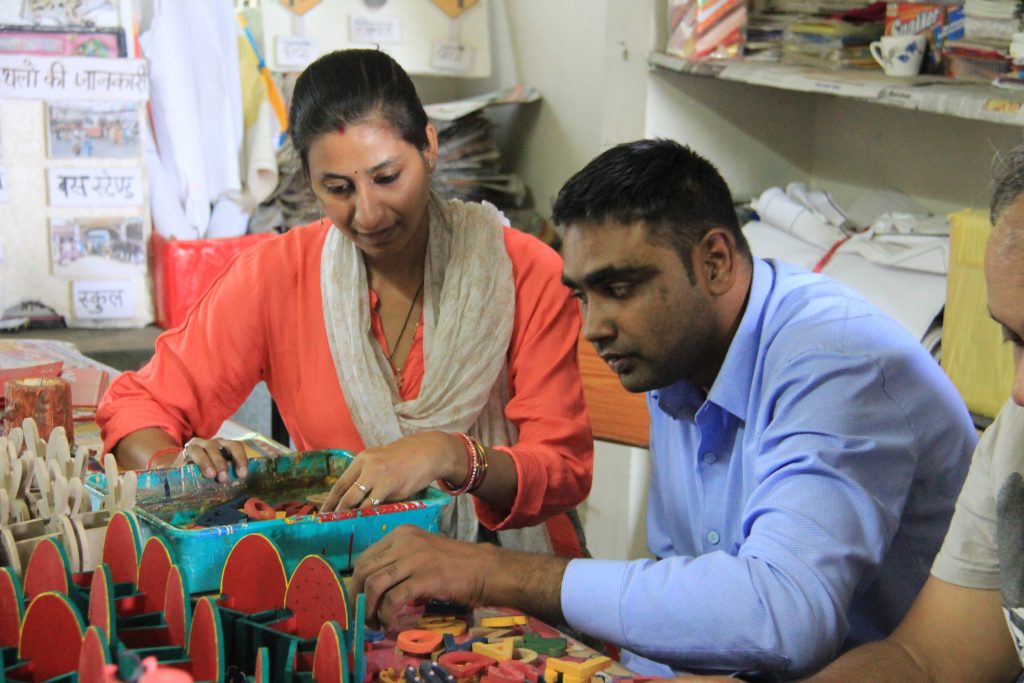
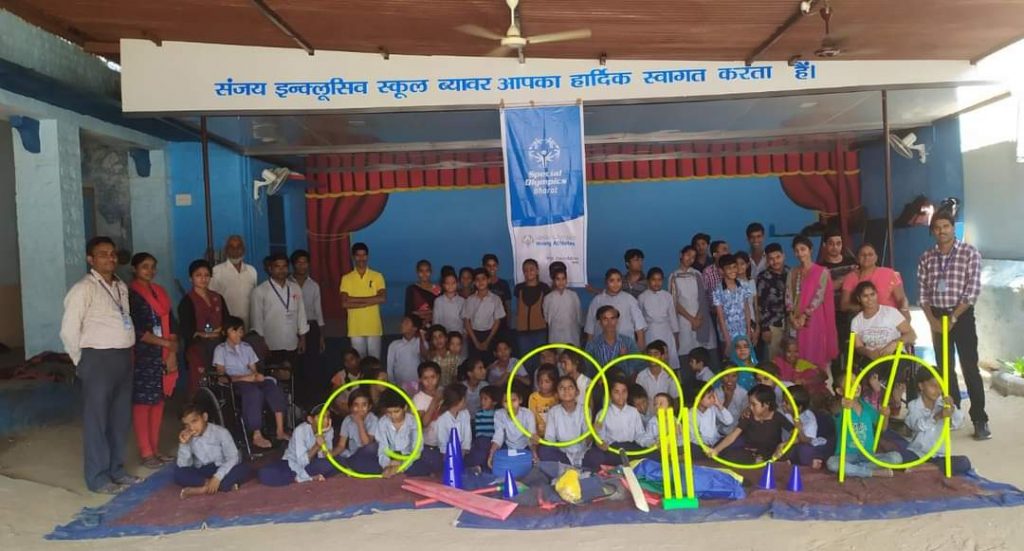
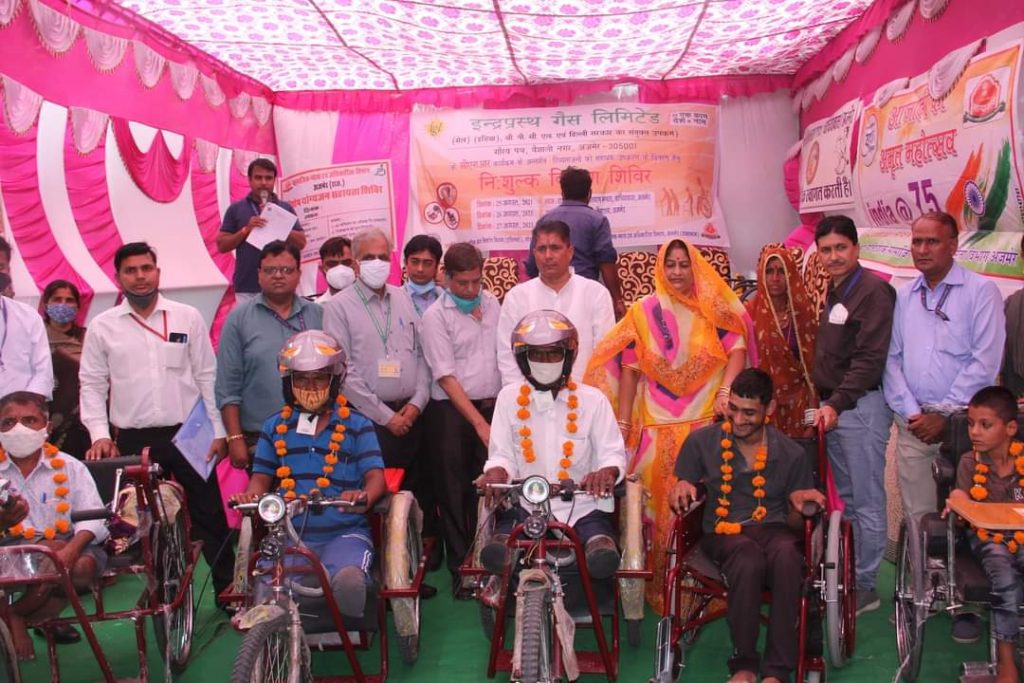
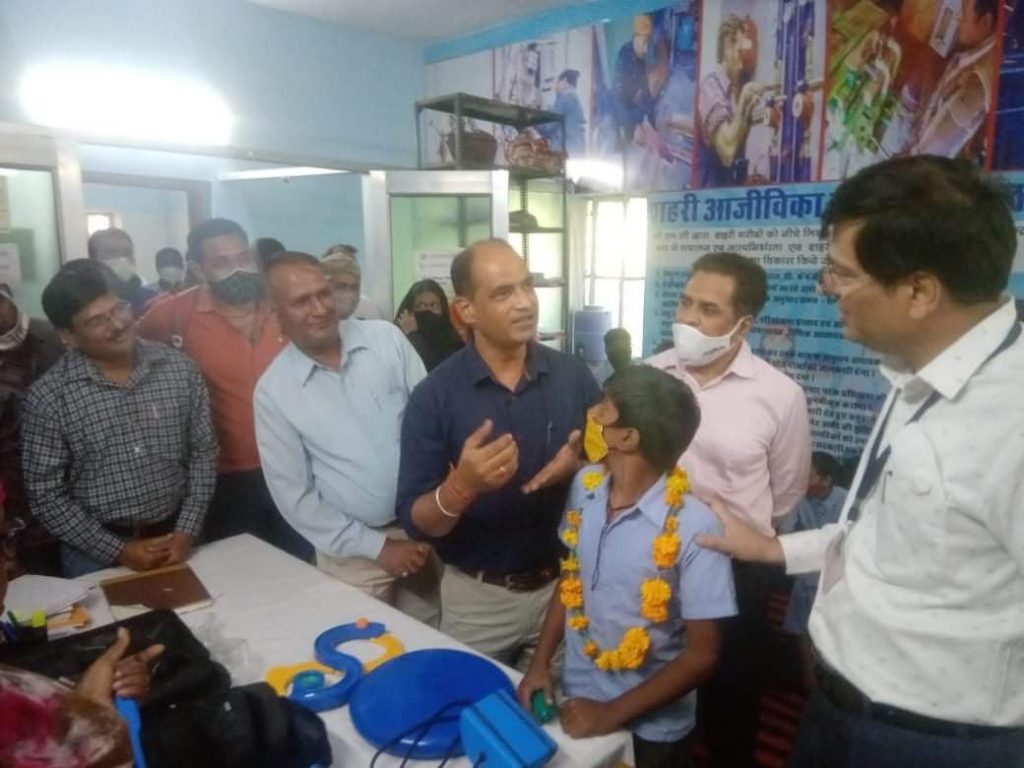
- Occupational therapy
- Psychological assessment
- Speech therapy
- Physio therapy
- Special education
- Support to avail accommodation and modification at board level
- Special Olympics
- Games/arts/crafts
- Pre vocational training,
- Computer based skill based training
- Aids and appliances and technology support
- Parents and children counselling
- Linkages with social security schemes
Sanjay School Beawar : Sanjay School was established in Beawar in 2001 as the first special school of Beawar with support of Sir Ratan Tata Trust, and in 2005 to promote inclusion widely Sanjay school by opting reverse inclusion approach turned as regular school where up children are getting education up to grade 8th level. Now Sanjay school is supporting cross disability students along with non disabled children in regular classrooms.
As the only school in Beawar which is providing required remedial and rehabilitation support to children with diffrences it has received appreciation at district level.
Services offered at Sanjay School
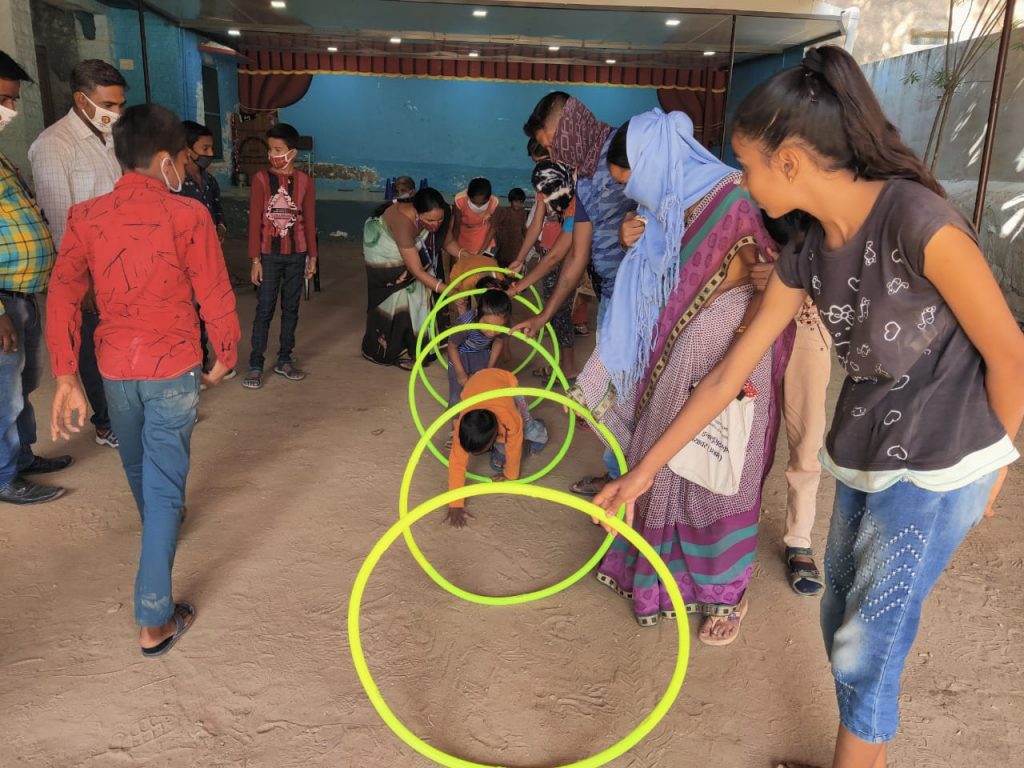
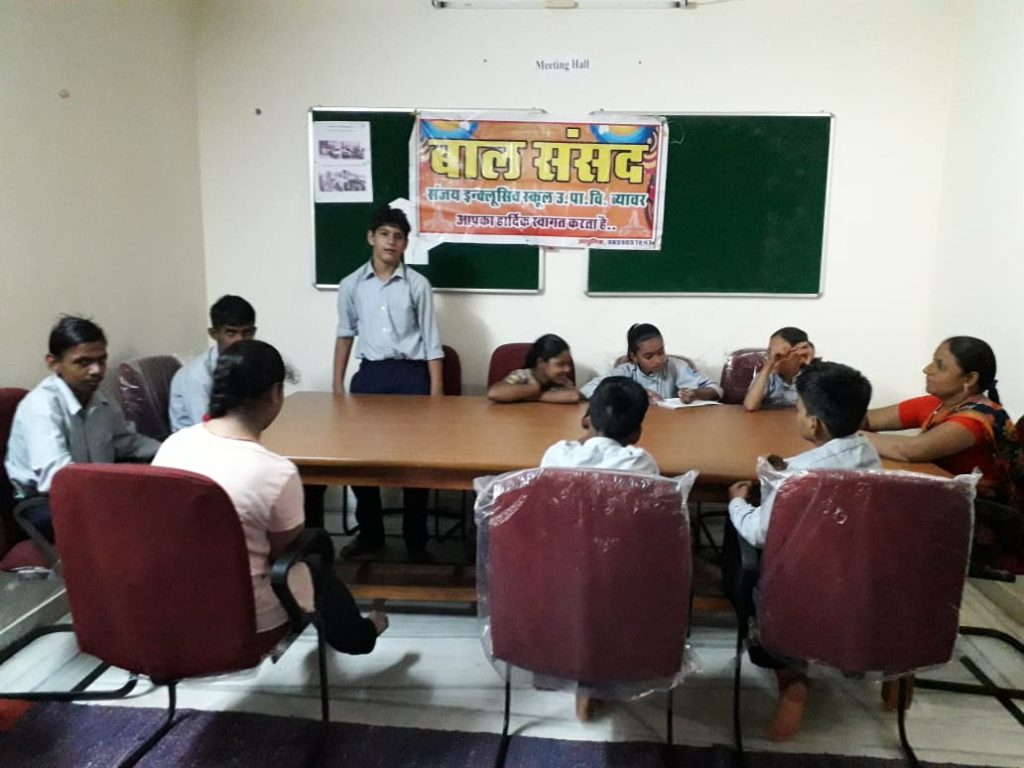
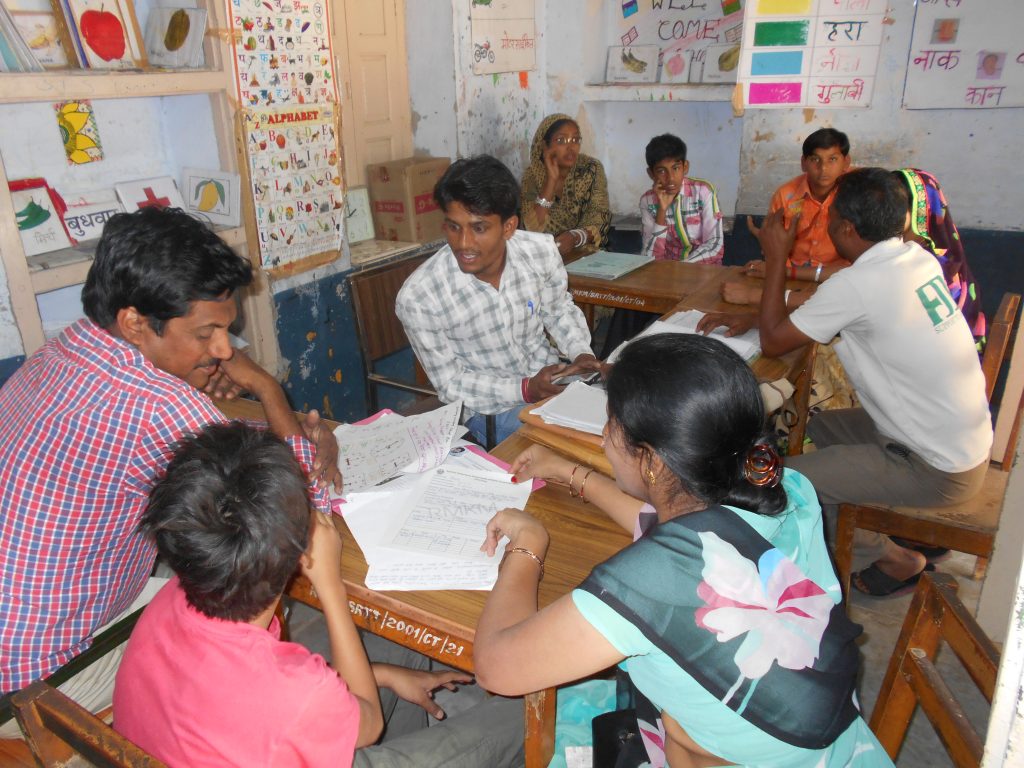
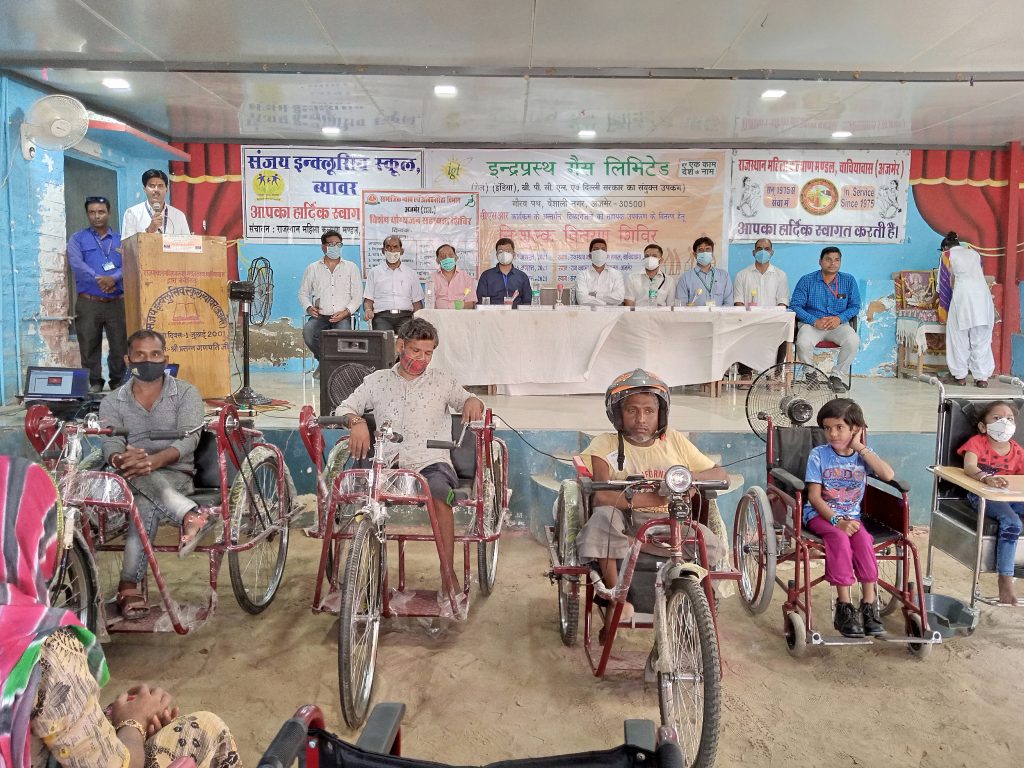
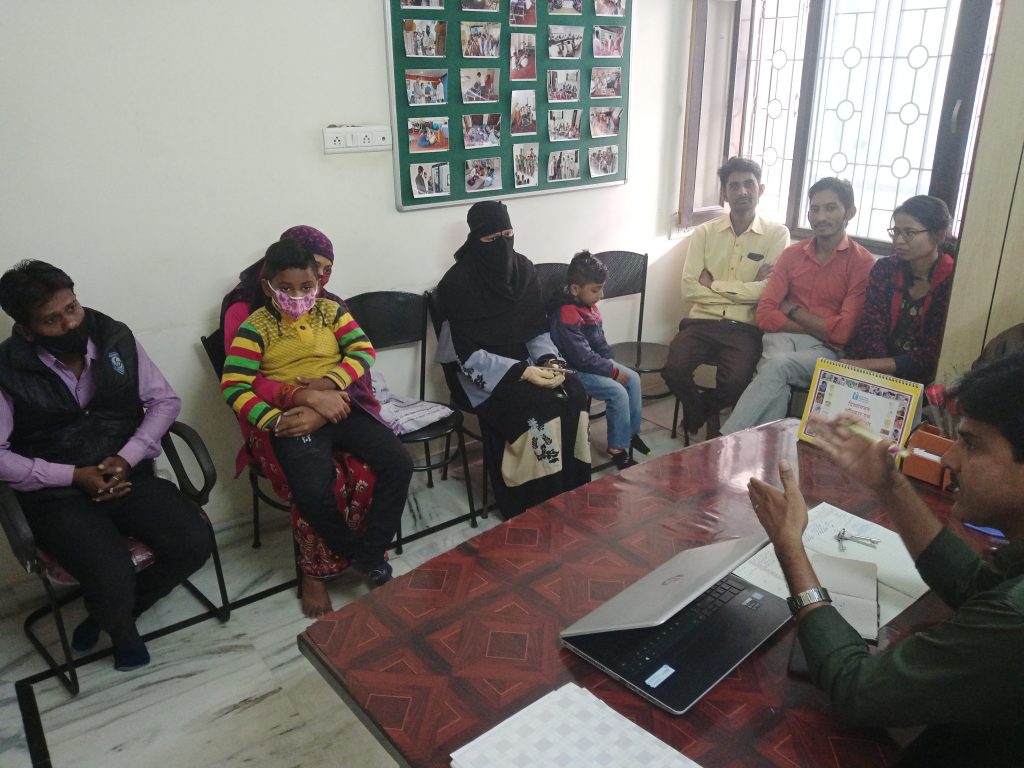
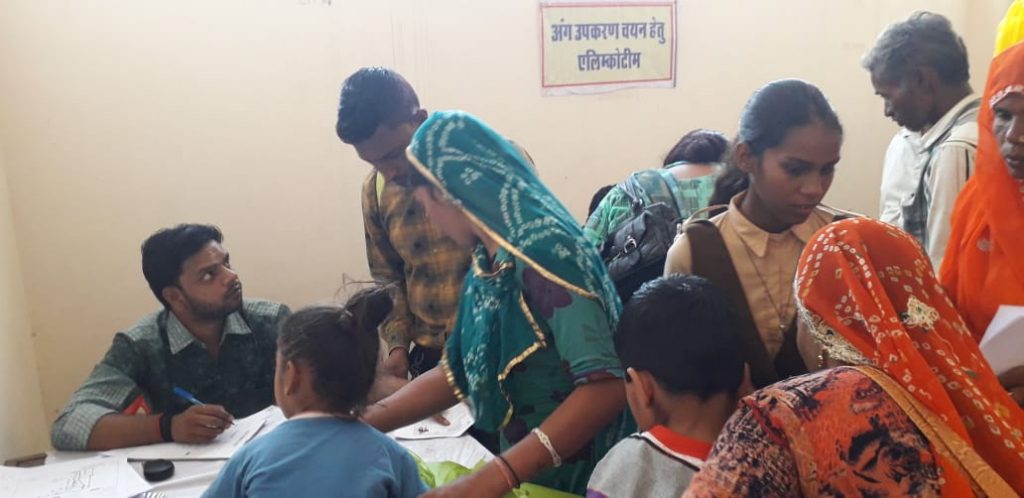
- Occupational therapy
- Psychological assessment
- Speech therapy
- Physio therapy
- Special education
- Support to avail accommodation and modification at board level
- Special Olympics
- Games/arts/crafts
- Prevocational training,
- Computer based skill based training
- Aids and appliances and technology support
- Parents and children counselling
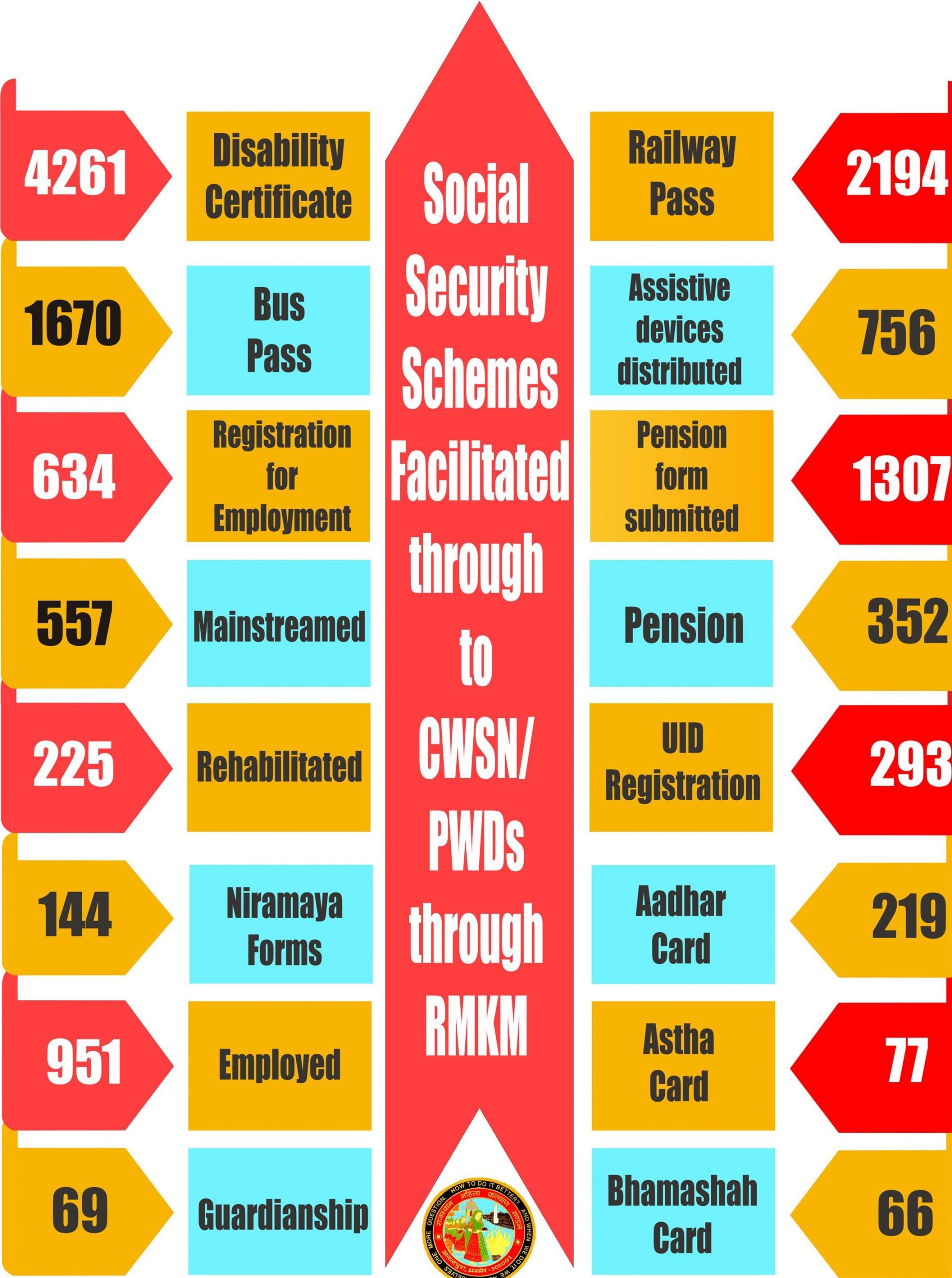
Social Security
Schemes Facilitated
through to CWSN/PWDs
through RMKM
Adwait – Center for Excellence in Education & Therapy Panchsheel Nagar, Ajmer : At Advait we support Early intervention and help children improve their abilities and learn new skills.
We worked with parent doctors ANM to detect children’s delayed development signs at earliest.
We try to fill the gap of guidance and counselling with parents whose children are admitted in the NICU after birth.
In our methodology
We provide skills and inform the parents to detect their child’s delayed milestone and we ask them to “Tell your child’s doctor or nurse /ANM/Asha if you notice any signs of possible developmental delay and ask for a developmental screening.”
Early intervention services focused on
- Timely support that helps babies , toddlers and young kids (from birth to 6years of age ) with developmental delays or disabilities and their families.
- We provide speech therapy, physical therapy, and other types of services based on the needs of children and their family.
- We focus on a child’s ability to learn new skills and increase their success in school life and inclusion so that impact disability in future life get minimised.
- Any inquiry call WhatsApp No. 9351233541
Ummeed Day Care Centre Pushkar : This was established in a year 2013 with support of old Rang ji Temple Trustee Shri Anant Ganeriwal and community to support Children and Adults with disabilities and their families residing in Pushkar and nearby 40 villages. Through this centre we are providing following services
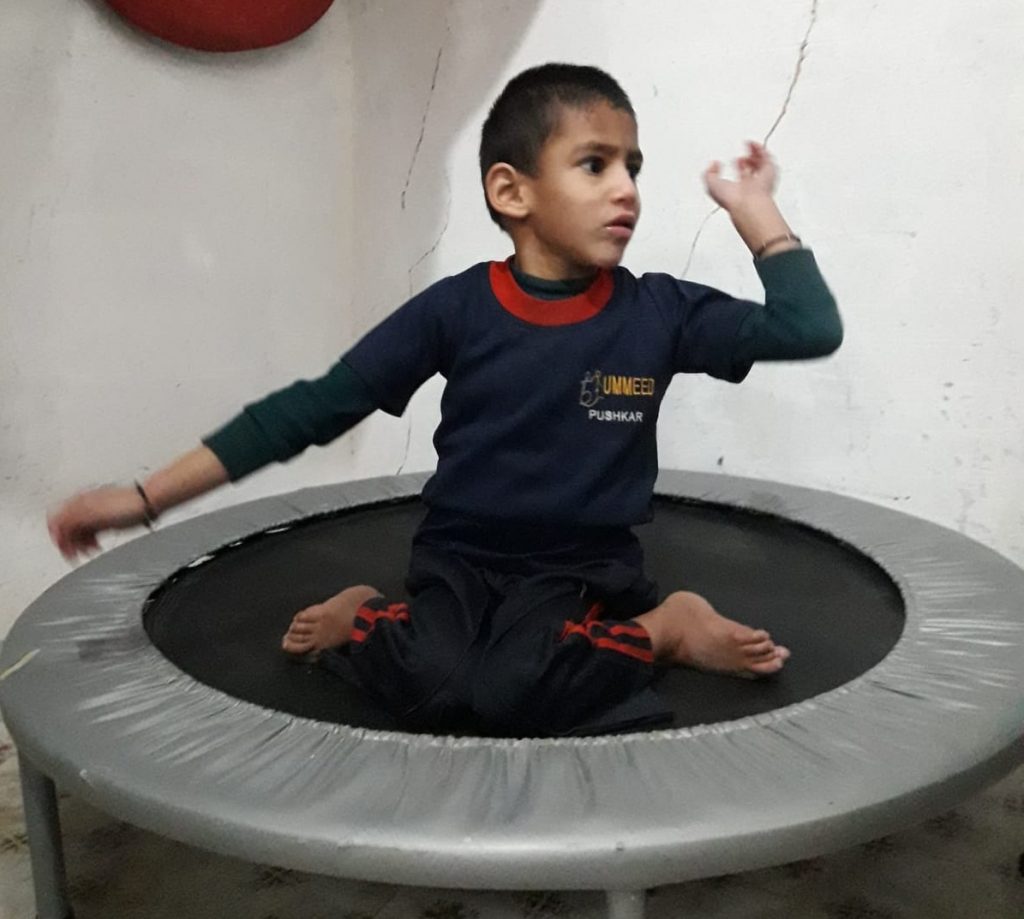
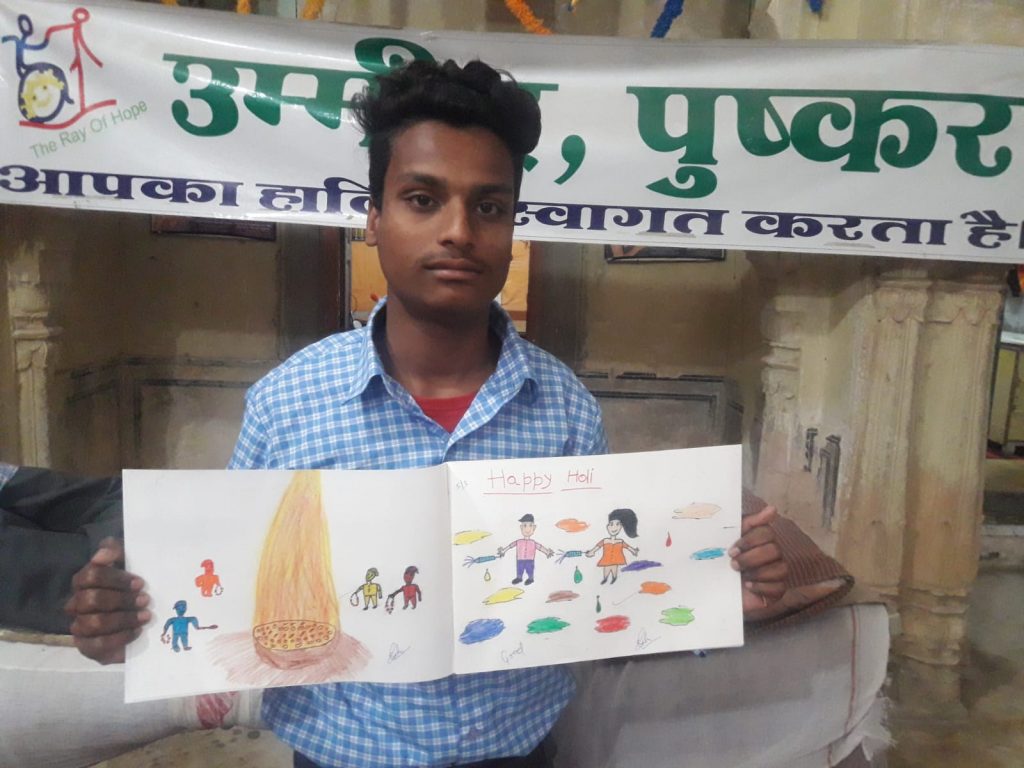
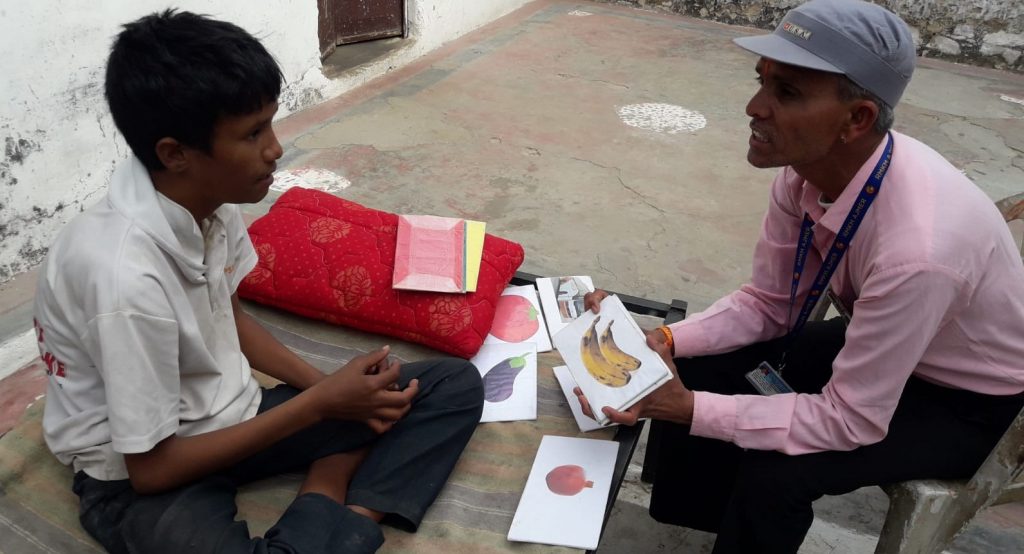
- Special education
- Physiotherapy
- Speech therapy
- Psychological Assessment
- Hearing and vision Assessment
- parent/children counselling support
“Daksha” Skilling up persons with disability : “DAKSHA” initiative was started in year 2006 at Chachiyawas for skill training of persons with disability and to pulled out them from ABC model of employment which was focussing on Agarbatti-making, Book binding and Candle making and was not able to generate income more than Rs. 2K per month and employment to live the dignified life,
As per census 2011, there are 26.8 Million PWDs in India, out of which 15 Million hail from Rural background. Even though they constitute a significant percentage of the Indian population, their need for employment largely remains unmet.
organisation is providing skill training wood craft and stationary and decoration since 2006 to persons with disabilities to enhance the scope of training as per the interest and to raised economical stability and independence With support of The Hans Foundation (THF) in 2019, we stepped into new trades like Gardening, Housekeeping & Front-office Management through “Daksha-skilling up persons with disability” under which we provided training in highly job-oriented trades, in which the salary ranges from Rs. 8K – 10K per month that leads to sustainable dignified livelihood. The Hans Foundation (estd. in 2009) provides support to organizations in India to address the issues of poverty alleviation, economic inequalities, and quality of life through social development programs.
Community based rehabilitation programme Ajmer Beawar and Pushkar : Community Based Rehabilitation (CBR) is a community development strategy that aims at enhancing the lives of persons with disabilities (PWDs) within their community. Community-based rehabilitation (CBR) was initiated by WHO following the Declaration of Alma-Ata in 1978 in an effort to enhance the quality of life for people with disabilities and their families; meet their basic needs; and ensure their inclusion and participation. RMKM has been doing CBR intervention since 1998. The first programme was initiated with CRY in 1998. VIBHA USAINC started supporting this initiative in 2000, we strengthened our services with support of SRTT from 2000 to 2016 in CBR and then considering the remote need we deepened our services with Azim premji philanthropic initiative extended hand of support from 2017 and we have deepened our CBR activities in Ajmer Beawar, and Pushkar.
Community-based rehabilitation or CBR is one kind of strategy RMKM is using within the community for equalization of opportunities, the rehabilitation & social integration of persons with disabilities. Our CBR programme is generally implemented by the combined efforts of people with disabilities, their families and we also involve all stakeholders who are directly or indirectly helping for rehabilitation of persons with disability within the communities.
In 1998 the programme started with 50 children and now around 2000 CWSNs are enrolled and supported.
Under CBR we are focusing on the component viz Health, Education, Livelihood, Socialization & Empowerment in which CBR workers are dealing with 4-5 differently abled children in one day and minimum 45 minutes of different activities, special education, physiotherapy etc. Once they were ready for mainstream education, CBR workers linked them with pre-schools or schools asper their age.
Those who are above the age of 15 years, are provided pre-vocational training by engaging them in job or any home-based business to enable them with the skills to grab various jobs and then community motivator helps them in finding various employment opportunities, when they become 18 years, that enable them to stand independent & earn their livelihoods.
Our major aim is to promote social inclusion model in all over Rajasthan and which can be replicated in other states as well where children and adult with special need are segregated from the community
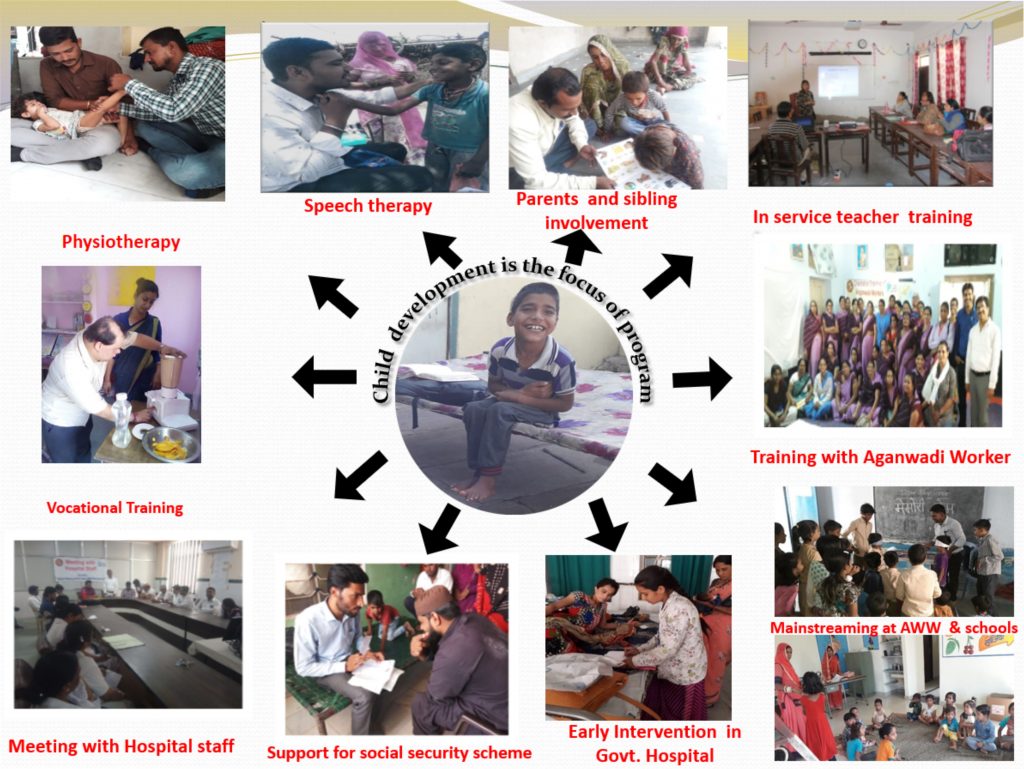
Minu Residential and Respite Care Centre : The rehabilitation of special children, informed therapies and special techniques play an important role. However, the lack of facilities in special schools and the scarcity of trained special educators compound the problems of a majority of special children, especially the mentally challenged, those with multiple disabilities, autism or cerebral palsy.Hence since January 2006, RMKM has been running the Minu Residential and Respite Care Center. This programme reaches out to disabled children in rural and other remote areas where special education and training facilities are not available. Through this programme parents can avail training for their children by staying a few days in campus itself. Sometimes due to specific needs of children parents can’t go and attend social family functions and most of the time Mother is the one who is kept behind with child, this creates a major impact on mental health of the mother. To give little relief to parents we provide respite short term care for children with special needs. Parents can keep their children for one week, 15 days or for a month as per their requirements.
Any inquiry call WhatsApp No. 9351233501
Learning programme For Persons With Deafblindness
From April, 2017 RMKM is running this centre. This centre was initiated with technical and financial support from Sense International for 3 years. Now RMKM is providing services to assist the identified children through comprehensive home based service which includes functional and clinical assessment, educational intervention, therapeutic services and nutritional services wherever required.
District Local Level Committee for Guardianship of Persons with Intellectual Disability, Cerebral palsy, Autism, Multiple Disability Under National Trust Act 1999
Guardianship under the National Trust Act
Under section 14 of the National Trust Act, the Local Level Committee headed by the District Collector is empowered to receive application in Form A under Rule 16(1) & appoint guardians in Form B under Rule 16(2) for persons with Autism, Cerebral Palsy, Mental Retardation & Multiple Disabilities. It also provides a mechanism for monitoring and protecting their interests including their properties.
RMKM acts as a Member Secretary in this committee and supports legal Guardianship for the CWSN. RMKM organizes various awareness programmes in Rural and urban areas for creating awareness about Guardian ship.
What is Guardianship?
A guardian is a person who is appointed to look after another person or his property. He or she assumes the care and protection of the person for whom he/she is appointed the guardian. The guardian takes all legal decisions on behalf of the person and the property of the ward. The occasion for taking care of another person may be his minority that is, a person who has not completed 18 years of age. It can also refer to guardianship of a person who because of physical and mental deficiencies is unable to take care of himself or his property. From early times, the condition of minority has been the ground for appointment of guardians in all societies. This is due to the fact that a minor person is considered unfit to take decisions for himself, which can be binding on him as regards others. Therefore, a minor person is treated in law as incompetent to enter into contract with a person who is an adult. In all matters therefore, a minor has also been considered unfit to represent himself except through his guardian. A guardian takes decision on behalf of the minor for protecting the interests of the minor and his property.
